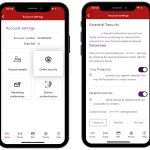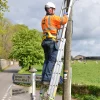Government Propose to Setup UK Regulator for Internet Censorship
The UK Government is to publish a new ‘Online Harms White Paper‘ that proposes to establish a regulator for internet content, which among other things would be tasked with forcing websites to remove bad content (e.g. hate speech, fake news) and even blocking or imposing fines upon those that fail to comply.
Until now most of the online world has tended to operate through a system of self-regulation. Sadly some of those content providers have struggled to tackle recent challenges, such as election interference by foreign states (e.g. fake news propaganda), stamping out terrorist or criminal material online. Not to mention the plague of internet trolling (i.e. people who post generally abusive or harmful content) and “fake news“.
Lest we forget that the 2017 Conservative Party Manifesto promised to “take steps to protect the vulnerable and give people confidence to use the internet without fear of abuse, criminality or exposure to horrific content.” Indeed the principle of what they’d like to deliver is perfectly understandable, although there could be some negative consequences (more on that later).
Advertisement
Broadly speaking the new paper proposes to introduce a legal duty of care upon internet websites, which would be enforced by Ofcom or a new regulator via a code of practice. The key proposals are as follows.
Brief Summary of the Proposals
– Establish a new regulator for internet content (possibly Ofcom, but yet to be decided).
– Companies that ignore the rules could face huge fines and bosses who are proven to have been negligent of their responsibilities could also be held personally liable.
– Social media sites will be expected to tackle a range of problem areas including inciting violence / spreading violent content (including terrorist content), encouraging self-harm or suicide, fake news / spreading disinformation, cyber bullying, child exploitation and abuse content.
– Websites may also need to implement measures to prevent children accessing inappropriate material (Age Verification again?)
– The rules will focus upon major social networks (Facebook, Twitter etc.) but also target smaller file-hosting sites, online forums, messaging services and even internet search engines.
– Websites that fail to comply could be blocked. We assume this would have to be carried out by UK broadband ISPs, like the forthcoming porn blocks, and is thus likely to be easily circumvented.
The key focus of all this is clearly intended for the eyes of major content providers, with Twitter and Facebook being primary targets. On the other hand some would argue that they’ve already taken significant steps to tackle such content and that rushing toward regulation may end up being counter-productive.
Theresa May, UK Prime Minister, said:
“The internet can be brilliant at connecting people across the world – but for too long these companies have not done enough to protect users, especially children and young people, from harmful content,” she said.
That is not good enough, and it is time to do things differently. We have listened to campaigners and parents, and are putting a legal duty of care on internet companies to keep people safe.
Online companies must start taking responsibility for their platforms, and help restore public trust in this technology.”
Commercial websites, like those mentioned above, are highly likely to try and reduce their liability for bad content by introducing automated filtering systems, which are notorious for being overzealous and unable to understand context (e.g. people joking about blowing up a city vs actual terrorist discussions). The end result is usually significant over-blocking of lawful content (mass censorship).
In keeping with that there’s the age old problem of how you define “hate speech,” as well as who decides what is “fake news” online in the first place and then separates that from related content, which may include criticism of the same subject, as well as satire, the right to cause offence, political free speech and so forth. Automated filters won’t get this right.
Advertisement
Meanwhile there’s still a big question mark over the accuracy and effectiveness of online Age Verification systems. Not to mention that the huge scale of recent hacks and personal data thefts has resulted in people becoming less likely to trust online services with their personal data, which doesn’t bode well for anybody thinking of asking their users for more personal data or even financial details.
The Government’s former culture secretary, John Whittingdale, has already spoken about the risk of creating a “draconian censorship regime” and of harming free speech like already happens in a number of places. “Countries such as China, Russia and North Korea, which allow no political dissent and deny their people freedom of speech, are also keen to impose censorship online, just as they already do on traditional media,” he said.
UPDATE 9:31am
Details of the new code of practice, updated digital charter and online harms white paper have now been published. A consultation on the white paper will run until 23:59 on 1st July 2019.
Advertisement
UPDATE 3:18pm
The UK Internet Service Providers Association (ISPA) has warned that ISPs will face growing challenges if required to block non-compliant sites.
Andrew Glover, Chair of the ISPA, said:
“Today’s Online Harms White Paper makes it clear that the onus is on social media sites and other parts of the internet value chain to step up to the plate and to take more responsibility for the content on their platforms.
ISPA has always maintained that the White Paper should create a framework for regulation that takes an evidence-based, holistic and proportionate approach to policy-making, instead of kneejerk responses to individual harms.
The proposals outlined in the White Paper appear to share this view, but they are also ambitious and far-reaching. We will be working with our members through the consultation process to help answer some of the key questions that inevitably arise from such a broad consultation. These include the nature of the regulator and role of Government, companies in scope and enforcement.
The White Paper lists ISP blocking of non-compliant sites as a potential enforcement mechanism of last resort. However, as technology evolves, including through new technical protocols such as DNS-over-HTTPS, the ability of ISPs to put in place technical measures could be substantially reduced. The legal basis of any blocking action taken will also need to be clear.”
Mark is a professional technology writer, IT consultant and computer engineer from Dorset (England), he also founded ISPreview in 1999 and enjoys analysing the latest telecoms and broadband developments. Find me on X (Twitter), Mastodon, Facebook, BlueSky, Threads.net and Linkedin.
« Local Opposition Making UK 5G Upgrades to 4G Masts Difficult
Virgin Media UK Discounts 108Mbps Broadband and Phone Plan »


















































All this will do is push content providers out of the UK.l and increase VPN usage.
True, but they start small and power grab little by little, I suspect at some point they will outlaw VPN providers, the same way Russia just did with some of the bigger VPN providers like HMA.
How is such a law to be enforced against websites hosted outside the UK’s jurisdiction? And if the government manages to force ISPs to block access, what’s to stop dial-up access points being set up abroad accessible via an international call (apart from cost)?
Just VPN it.
There probably going to go the China route and do some deep packet inspection to filter out blocked content & disabling some VPN protocols from working in the UK.
The China route gets even worse, they can see that your hiding and pay you visit.
Give me strength: May really is modelling on labour of the 40s-60s where a perverse belief that the state should be everywhere and do everything pervaded.
Maybe it’s time foreign websites (Like Amazon, etc.) just blocked from accessing their services the UK and be done with it.
Just leave the internet alone, we don’t need protecting or censorship. why do our government always have to ruin everything, The internet is going to suck in the future.
Oh gawd is this gonna be another case of the cute dotty old dear wandering off lost for again for “negotiations” with someone, not tell anyone what was discussed, want a vote on it over and over and still not comprehend why it does not go through.
How or even why she would think she can implement rules on business not even based in this country or subject to this ramble shackled mobs we have in charge “laws” which can not even agree with a vote on the best way to tie your shoe laces is is beyond me.
I do not even know what the hell “…and are putting a legal duty of care on internet companies to keep people safe” even means. Is twitter providing an army of blue birds, see we each get our own bodyguard?
Are Facebook are going to turn every road junction into a giant “F” shape? (look close) there are two lanes on the right, one for traffic and one for little billy to cross the road on the way to school.
This ************ (self censored cos thinking someone is not very smart is now hate speech) woman has to go.
In the UK we really do now live in the nanny state.
harmful content? when it comes to social media firstly children under the age of 13 shouldnt even have accounts but parents seem to think its someone elses job to moderate this rather than themselves, however lets be honest here this is just an excuse to get some kind of system in place to give the government more control over what we see.
sadly this is already happening, several friends of mine are quite outspoken on social media and each and every one of them has been banned at one time or another from posting content not because it contravenes the respective sites ToS but because because certain people just dont like their opinions… most recently one of my friends got a ban for posting about Brexit and is very good about giving things a neutral spin yet posted one personal opinion and now he is banned from posting anything for 3 days, another friend a disability campaigner posted articles critical of the government and its treatment of the disabled, every one of her articles disappeared and she is still waiting a week on to hear back when she will be allowed to post again.
my point being that censorship is a slippery slope, it always starts with someone allegedly having the best of intentions and then gets twisted, eventually it will end up that even criticism will be censored or just things that the government plain dont like which to be honest has already started as lve noticed that the majority of critical and left wing leaning articles these days never have a share button, but right wing news however always has one.
TV has it. Radio has it. Film has it. Did you think the honeymoon on the internet would last forever?
I guess the problem there is the “Fake” news bit they want to ban happens in all of those mediums.
A good example being from the dotty old dear who’s idea it is to ban fake news who said on the news multiple times we would leave the EU by the 29th March. One has to wonder now under her own new dictatorial regime is does anything she has to say make her a FAKE NEWS TROLL THAT SPREADS DISINFORMATION.
https://www.youtube.com/watch?v=6rdG25B5Ia8
https://www.youtube.com/watch?v=CgW7QDPWu3U
I guess this fake news is OK though because half of it is done over her Governments funded BBC and not the internet.
Those people that ‘are fine with this’ because they can use a VPN, fail to see the bigger picture. Power grabs start small, and they grow. If they ban hundreds of thousands of sites but thousands of people are using VPN providers to bypass this, then the government will likely step in and enforce VPN providers to provide the same restrictions.
Should the VPN not cooperate, they can simply block their website, preventing new users to sign up, this is the danger of giving the government too much control. They will use the online ‘bullying’ and other children related issues to push their narrative.
MP’s proposed these controls back when the London rioting was happening, people were using Facebook to coordinate their protests. If the Government has the ability to ‘SWITCH OFF’ of websites, you can be sure they will do it. It’s important NEVER to give to much control to the government, a good country is one that the government fears the public, a bad one country is one that the Government can do as they please and get away with it, often see in countries in the middle east, where people have little to no power or say who governs them.
The reason they want to crack down is due to the big awakening by average folk. And one by one as people awake they share their information and ideas, they wake up more and more people they talk to. And it is in the beginning and the governments and mainstream media are literally terrified.
This awakening could bring down their system.
Mainstream media IS FAKE NEWS and they invent stories in order to bring in new legislation. Most terror attacks are staged events.
History was invented. Check out “Mudflood” on Youtube.
NASA lies and fake space, new proof of the flat earth realm.
Banks and governments stealing our money. Check out Northanmptonshire council scandal.
Vaccines and the lies behind them. Check out Vaxxed.
The list goes on and on